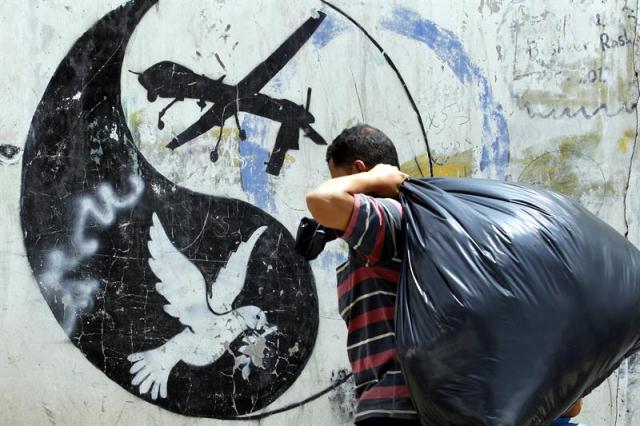The Yemeni Civil War has only in recent months started to appear in the British media, raising awareness of the on-going conflict. Even then, the extent of Britain’s involvement has been kept under wraps. The British government is actually more involved than they divulge, aiding Saudi Arabia with logistical support, military intelligence, arms and according to The Independent, the British government is even training the Saudi air force. It is shocking that the UK is funding a country whose policies are almost polar opposite. Saudi Arabia has a long history of human rights abuses and denies women of the most basic life functions and now the UK are committing serious violations of international humanitarian law.
Britain’s involvement has and is continuing to being kept hidden and brushed aside by the majority of mainstream media, partly because the media is controlled by the government. As Manuel Castells states in Communication Power, ‘what does not exist in the media does not exist in the public’. The times when the mass media have chose to report on the conflict in Yemen, it has generally failed to properly disclose the extent of Britain’s involvement to the public. For example, The BBC (funded by the public licence fee and government) claim to be independent from state control, published an article earlier this year (March 2017) with the headline, ‘Yemen crisis: Who is fighting whom?’ with an in-depth summary of how it all began and everything since then. However, they only gave a brief, single sentence acknowledging the UK’s involvement. Further down the article there was even the subheading of, ‘Why should this matter for the rest of the world?’, which states, ‘It worries the West because of the threat of attacks’. If the UK and US had not aided the Saudi Arabian-led intervention in Yemen, which resulted in thousands of innocent deaths, then this potential threat would be significantly lower.
In more recent months some British media outlets have started to expose the UK government with headlines such as, ‘Can We Care Less About the War in Yemen?’, ‘The world needs to know about Yemen’s war. But journalists are being silenced’ and ‘Britain has blood on its hands over Yemen’. However, the majority of the media have still failed to fully report on the matter. If they claim to be independent from state control then why are they not exposing the catastrophic consequences cause by Britain’s involvement? Is it because they are partly controlled by the government, making them biased? It appears that the government is aware of the uproar it will cause if it hits front-page news, perhaps they are even aware that what they are funding in Yemen is morally wrong, but they are going to continue to do so in order to build a stronger relationship with Saudi Arabia and other countries in the Saudi-led coalition. However, in the long run this will result in developing bad relationships with other countries as innocent peoples lives are being lost on a daily basis and therefore this is threatening the UK’s national security.
In early 2016, David Cameron when he was still prime minister stated, “We’re not a member of the Saudi-led coalition, British military personnel are not directly involved in the Saudi-led coalition’s operations, personnel are not involved in carrying out strikes, directing or conducting operations in Yemen or selecting targets and we’re we’re not involved in the Saudi targeting decision making process.” This may be true but Cameron was deceiving the general public by failing to mention specific information; how the UK does aid Saudi Arabia. The UK may not be directly involved from the ground of Yemen however, we are far from a neutral bystander like the government has made out since 2015. The war in Yemen has been going on for over two years now, it’s about time it gained coverage and the killing of innocent people was stopped.
Paige Middleton




